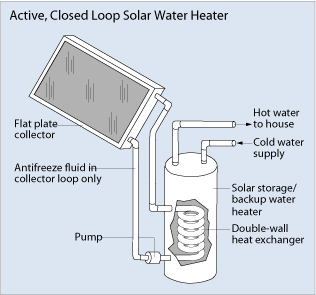Renewable Energy Sources
Renewable energy is the process of using natural resources to create energy that can be turned into electricity.
------------------------------------------------------------------------------------
First Generation Biofuels
These consisted of mainly of food crops like corn, soybean wheat, sugar cane etc. They were used to create ethanol to be use in motor vehicles. The negative effect of this is that the cost of food went up as a result of using too many food crops. Also the amount of economic resources required did not produce a net reduction of imported fossil fuels. The US government now discourages the use of food crops to produce ethanol. Brazil is one of the few countries that still use food crops.
Second Generation Biofuels
This is mainly the use of non-food crops to produce all types of fuels. The most popular one used now is switchgrass. This process is very complicated because this crops do not produce enough sugar which is necessary to produce fuels.
Harvesting Switchgrass
Third Generation of Biofuels
ALGAE (See blog on The Future of Algae)
-----------------------------------------------------------------------------------------------
In United State hydro dams are responsible for 10% of total electricity and 61.12% in Canada.
The perfect place for this is Eleuthera. Water from the sea can come in from the rough side and go out through the calm side and in between produce energy for electricity. This would significantly reduce the cost of electricity throughout Eleuthera.
----------------------------------------------------------------------------------------------
WIND ENERGY
Wind farms are not recommended by me because they are very expensive, unreliable and produce small amounts of electricity.
However, there is a company that is willing to invest its own money to create a wind farm on New Providence if BEC would buy the energy from them. They are doing it successfully in California and the Dominican Republic currently.
---------------------------------------------------------------------------------------------------
SOLAR ENERGY
Commercial:
Residential:
Water heating accounts for about 30% of the average home electricity bill.
Solar Thermal
This is the fastest growing renewable energy throughout the world. Germany is the world leader in converting solar energy into electricity. In The Bahamas we have 265 solar days therefore this method is highly feasible. In Germany, the electricity that is produced by solar panels are feed into the national grid and is sold to the electricity company. The building is wired with a meter that records both the amount of electricity produced and consumed. The electricity company sends the consumer either a credit or a reduced bill at the end of the month. That is called net metering. The net amount is mainly an accounting procedure. In The Bahamas we should be moving towards this method with great haste.
-----------------------------------------------------------------------------------------------
Commentary:
The Bahamas is well positioned to be the world leader in renewable energy. We have the ability to be the leader and not the follower in this field. In order for this to happen we must create a national development plan and take politics out of the mix.
One of the biggest questions over the next few years is going to be, what to do with BEC. As it stands now BEC is the regulator, the creator and distributor of electricity in The Bahamas. Here are some points to consider:
1. Electricity and Water in The Bahamas must be placed under URCA. URCA will provide an independent review of prices and processes.
2. Even though the consultants suggest that BEC not be privatized. WTO and other international organizations will insist that the government get out of the business of utilities.
3. The government need to pass The Clean Air Act. This would force everyone to burn clean fuels or seek renewable energies. This would also reduce our carbon emissions and give us high marks in international ratings.
4. BEC must outsource the supply of clean fuels and renewable energy.
5. The government must privatize the city dump and allow the garbage to be converted into fuel.
6. Net Metering laws should be passed by end of the year and custom duties should be lowered on solar panels.
7. The building code need to be updated to include provisions for renewable energy.





















